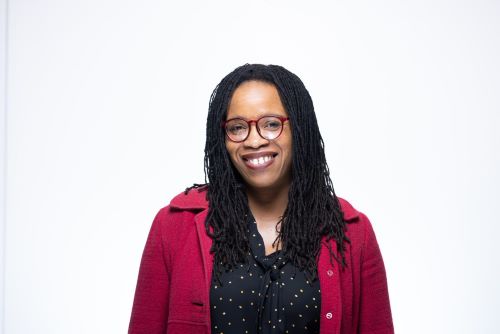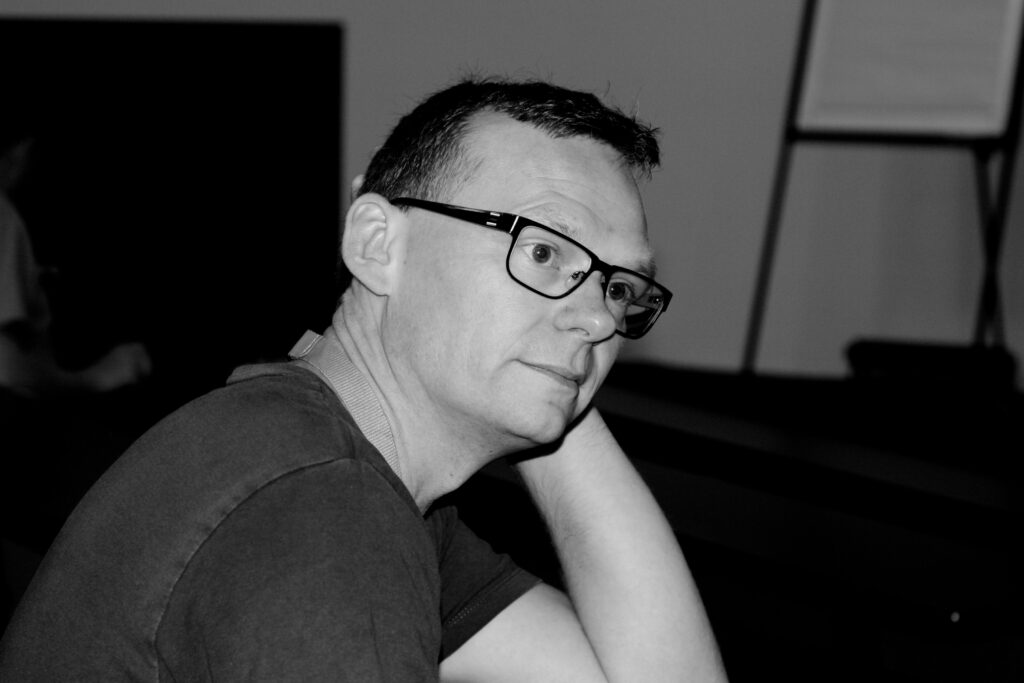The SEDA Spring Conference 2024 will focus on the changing face of educational development in higher education. We welcome contributions from all those who lead and support effective learning and teaching practices, including educational/academic developers, learning and teaching leads, student experience professionals, learning designers/technologists, enhancement leads, and academics and other colleagues researching higher education, to share research, perspectives and practice.
As our Higher Education institutions adapt to increasing pressures on the perceived value and measured outcomes of degrees, our role to support our academic colleagues to embed new approaches has moved from thematic enhancement to regulated mandates. Challenges such as assessment reviews, engaging blended experiences and maintaining academic standards in the face of new technologies, ask educational developers to become all-rounders of higher education policy. As our business of developing reflective teachers continues, how we adapt in these environments often in third spaces requires the need to connect and share practice as a community more and more. The SEDA Spring Conference offers an opportunity for delegates to access a supportive network to work together and address our common challenges to support student and academic success. This is an opportunity to share practices you are using and the impact of these, and also to engage in some problem-solving workshops.
The Call for Contributions is now closed.
Day 1: Keynote ‘You are your best thing: Addressing differential gaps through values based, person centred education.’, Dr Iwi Ugiagbe-Green, Manchester Metropolitan University
Dr Iwi Ugiagbe-Green has over 20 years’ experience of working in higher education and nearly 15 years’ experience of supporting students in higher education. She is Reader and a Learning Enhancement and Education Development (LEED) institutional innovation scholar at Manchester Metropolitan University, with strategic responsibility for degree award gaps and differential outcomes. She describes herself as an academic activist and anti-racism scholar. In the last five years her research has focused on race equity issues within the context of student education, experience, transition, and progression to graduate labour market and postgraduate study. She developed the very successful OfS/UKRI funded ASPIRE programme and STRIVE 100 programme. Both programmes have supported student success and led to incredible outcomes of groups of students, who are typically awarded lower degree awards or employment outcomes than other student groups.

Day 2: Opening Address and Keynote ‘Collaboration and Play: how to connect the curriculum’, Dr Alex Moseley, Anglia Ruskin University
Alex is Head of Learning and Teaching at Anglia Ruskin University, is a PFHEA and NTF. He is a leading expert in Playful Learning, chairing the Playful Learning Association and Conference since their inception, and is also a Certified Lego Serious Play® Facilitator.
Session Summary: Curricula should be co-curated with our students, staff, developers and employers: together we’ll explore this collaborative approach, drawing on playful leadership and our own agency. I really mean that: you’ll be delivering this keynote with me.

Venue
The conference will be held in Liverpool, hosted by Liverpool John Moores University in the Redmonds Building.
Conference Tickets
Tickets are available on the SEDA Eventbrite page
| Member rate (whole conference) | £220.00 |
| Non-member rate (whole conference) | £250.00 |
| 1 day rate (Thu) | £135.00 |
| 1 day rate (Thu) – non-member | £160.00 |
| 0.5 day rate (Fri) | £80.00 |
| 0.5 day rate (Fri) – non-member | £100.00 |
| Drinks/canape reception rate | £25.00 |
Hotels
The venue is very close to Liverpool Lime Street Train Station and there are several hotels nearby including:
Holiday Inn Liverpool City Centre
Delta Hotels by Marriott Liverpool City Centre
Radisson Red Liverpool
Premier Inn Liverpool City Centre (Lime Street)
Liverpool Central Travelodge
| View conference PowerPoint presentations Download PDF Version of Programme PROGRAMME DAY ONE – THURSDAY 16th MAY | |||
| 09:30 – 10:00 | Registration and tea and coffee, Redmonds Building (RB) 523, 5th Floor | ||
| 10:00 | Welcome, Prof Phil Vickerman, Pro Vice Chancellor for Student Experience, Liverpool John Moores University followed by Keynote: ‘You are your best thing: Addressing differential gaps through values based, person centred education‘, Dr Iwi Ugiagbe-Green, Manchester Metropolitan University RB/Lecture Theatre 2, Lower Ground Floor | ||
| 11:05 | Parallel sessions – workshops (60 mins) | ||
| 11:05 | Workshop 1 RB/507, 5th Floor | Workshop 2 RB/519, 5th Floor | Workshop 3 RB/520, 5th Floor |
| What makes an education developer? An exploration of academic and professional trajectories, Silvia Colaiacomo, University of Greenwich | Future facing academic enhancement and development: a competence-based model for ‘developing the developers’, Jenny Lawrence, Oxford Brookes | Why do educational development? An Appreciative Inquiry, John Peters, Birmingham Newman University | |
| 12:10 | Workshop 4 RB/507, 5th Floor | Workshop 5 RB/519, 5th Floor | Workshop 6 RB/520, 5th Floor |
| Curriculum design to enhance student wellbeing, Phil Carey, Liverpool John Moores University; Wendy Garner, University of Chester; Wendy Johnston, Liverpool John Moores University | EdD CoP: Developing Teaching and Learning through Communities of Practice, Cassie Violet Lowe, University of Cambridge | Focusing and Flourishing: Using a Framework for Strategic Change in Learning, Teaching and Assessment, Alison Purvis, Sheffield Hallam University | |
| 13:15 | Lunch, RB/523, 5th Floor | ||
| 14:00 | Parallel Sessions – various | ||
| 14.00 | Lightning talks 1 (5-10 mins) RB/507, 5th Floor | Lightning talks 2 (5-10 mins) RB/519, 5th Floor | Lightning talks 3 (5-10 mins) RB/520, 5th Floor |
| 14.05 | Authentic Assessment: Insights from the Development of the University of Chester’s Guide, Michelle Cordingley, University of Chester | Harnessing the Power of Photovoice for Transformative Assessment, Lindsey Gaston, Liverpool John Moores University | Is there a chatbot for that? – Reflections on supporting Faculty as they negotiate the challenges and opportunities of GenAI, Martina Crehan, Dublin City University |
| 14.15 | Illuminating Perspectives: The Queen’s Reverse Mentoring Pilot Scheme, Olivia Hamill & Kate McCorry, Queen’s University Belfast | How the University of Leeds is redesigning curricula through its ‘Curriculum Redefined’ programme. James Forde, University of Leeds | Proposing a framework to empower Eddevers and support their ongoing professional development, Karen Heard-Lauréote, KHL Consulting Ltd |
| 14.25 | Is Academic Credit for Taught Education Development the Baby or the Bathwater? Beth Picton, Durham University | Dimensions of Change: Educational Developers as Change Agents, Laura Milne, University of Chester | Embedding expected standards for Learning, Teaching and Assessment across UEL using an ADKAR model, Angela Murphy Thomas, University of East London |
| 14.35 | The serious role of play in educational development, Aybige Yilmaz & Aga M Buckley, Kingston University | Inspiring good practice through meaningful peer to peer learning, Antony Hill, University of the West of England | Educationol: A new framework to reflect on educational interventions, Marcus Pedersen, UCL |
| 14.45 | Developing developers: using insights from international students’ experiences to enhance educational design, Richard de Blacquiere-Clarkson, University of Leeds | How a finance course used a reflective qualitative assignment to encourage a shift in mindset and a broader learning, Patricia Perlman-Dee, University of Manchester | The TIRIgogy approach to continuing professional development in Higher Education, Nurun Nahar, University of Bolton |
| 14.55 | Questions and comments | Questions and comments | Questions and comments |
| 15:05 | Tea & Coffee, RB/523, 5th Floor | ||
| 15:20 | Parallel Sessions – various | ||
| 15:20 | Workshop 7 (45 mins) RB/507, 5th Floor | Workshop 8 (45 mins) RB/519, 5th Floor | Research Papers (2 x 20 mins) RB/520, 5th Floor |
| 15:20 | The long and the short of it: dualities and dichotomies in HE today, Yvonne Hoggarth, Independent Educational Consultant | Empowering Educators: Embracing Coaching-Based Observation Feedback in Higher Education, Daniel Cole, De Montfort University | The contribution of Educational Developers to academic citizenship in higher education, David Walker, University of Brighton |
| Embedding EDI in Curriculum Design, Daniela de Silva, University of Westminster | |||
| 16:10 | Plenary Panel (60 mins) Generative AI and Educational Development: opportunity, challenge, or potential disaster? Sue Beckingham, Sheffield Hallam University; Beverley Pickard-Jones, Bangor University; Fay Short, Bangor University; Peter Hartley, Edge Hill University RB/Lecture Theatre 2, Lower Ground Floor | ||
| 17.10 | Day One summary and close, RB/Lecture Theatre 2, Lower Ground Floor | ||
| 17.45 | Drinks and canape reception, RB/523, 5th Floor | ||
| PROGRAMME DAY TWO – FRIDAY 17th MAY | ||
| 09.30 | Opening Address and Keynote “Collaboration and Play: how to connect the curriculum”, Dr Alex Moseley, Anglia Ruskin University RB/Lecture Theatre 2, Lower Ground Floor | |
| 10:30 | Tea and coffee, RB/523, 5th Floor | |
| 10:50 | Research Papers 1 (3 x 20 mins) RB/507, 5th Floor | Research Papers 2 (3 x 20 mins) RB/519, 5th Floor |
| 10.55 – 11.15 | Trusting Educational Developers: Time to Claim the Profession, Celia Popovic, York University, Toronto, Canada & Associate Professor Mary Wilson from Wilfrid Laurier University, Canada | Are Academic Development and Educational Development really the same thing? And does it matter? Tom Cunningham, Glasgow Caledonian University |
| 11.15 – 11.35 | Reimagining Academic Engagement to Meet the Diverse Needs of International Postgraduate Students, Fatema Khatun, Aston University | Plus ça change?’: reflecting on change across 20 years of Educational Developers in Ireland as part of planning for the future, Claire McAvinia, TU Dublin, Ireland |
| 11.35 – 11.55 | The role of academic developers in initiating, developing, and supporting student-staff partnerships, Mick Healey, Healey HE Consultants & Professor Ruth L Healey (University of Chester) | Post-Pandemic Student Retention in Higher Education – Lessons Learned and Ways Forward, Jamie James, University of South Wales |
| 12.00 | Workshop 9 (60 mins) Change fatigue? Experimenting with a different approach to change planning and implementation, Sarah Wilson-Medhurst, SWM Consulting RB/523, 5th Floor | |
| 13.00 | Summary and Conference close, RB/523, 5th Floor | |